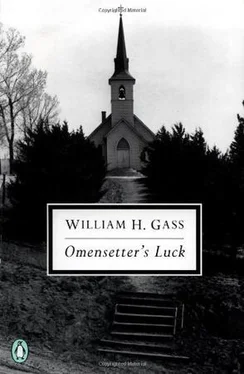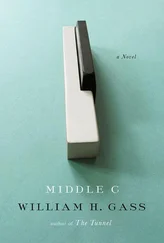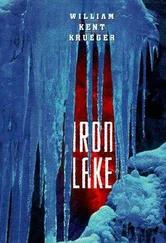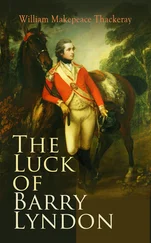Furber rose and began to walk, rubbing his buttocks. The hour was passing. Then they'd draw their wagon off.
The others — Meldon, Rush — bragged of the number of their years. Thirty-five in this church unchanged since its building; then Rush, exceeding even Meldon's strength of jaw with forty-one… forty-one years in the wilderness… and never a lion. Ordinarily they moved their ministers around — a very irregular proceeding, this interminable tenure. Always conscious of what he stood for, what he meant and ought to mean, Furber roughed the dark cloth of his coat with his fingernails and paced off the flagstones carefully. Dusk had fallen. Several fireflies, by glowing together, had haloed the head of the chip-nosed saint. He had smiled in his grief. In the half-light, the stone was faintly showing… it was Andrew Pike in his ghosting curtain… and he remembered leaning toward him drunkenly to say, ah Pike, breathe your spirit into me. Six years had failed to dim that memory. Six? It was six, surely? Somehow it seemed an eternity. the moment of his birth. He'd sat there several hours in a kind of stupor, rousing to weep and to bite his hands, occasionally to press his forehead painfully against the ground, sincerely miserable yet vaguely conscious, too, that Flack, his nigger soul and shadow, might be watching. This intensified his performance and greatly increased its range. He was boisterous, then silent; he cursed and begged; he confessed and threatened. He crumpled to a ball, like paper. He marched, cheering: heyheyhey. He snickered while he wept, and joked while he prayed. Spitting, he offered up his soul. Vain, he was humble. Proud, he was ashamed. I sign my petition, he cried, carried quite away, with my thirty million names. And I am lonely among my voices, these voices roaring in me. At last his strength began to fail him; he wearied of it all, and finally caring -for nothing, went half to sleep. Through his head, to the tunes of children's songs, his pitiful beliefs, his little sentences of wisdom, danced foolishly as he dozed, the meters they were forced to skip to reducing them to a vulgar gibberish. He tried to rally his thoughts and form them in unassailable squares, but not a line would hold, they broke ahead of any shooting, and the Logos wandered disloyally off, alone, rudely hiccoughing and chewing on pieces of raw potato, looking surly and dangerous. No book but Nature is the word of God. Logos. No ghost. Whirled. Screech. Hisssst.
Willie the whiny,
his nose nice and shiny,
will die, die, die;
as Millie the silly,
her belly so hilly,
will die, die, die;
and Minnie the bunny,
whose buttocks are yummy,
will die, die, die;
so Lily the beauty,
her bust absolutely
high, high, high,
must just as fully
fall willy nilly,
and die, die, die.
Once before, but in an entirely different manner, he had received a revelation. He was eleven, still a sexless child, weak even then, with signs of palsy and an affinity for fear so pronounced that he had driven his parents nearly out of their wits with it. At that time he sought out terror as though it were a sweetly scented flower. Black and white, bowlegged with a blind eye, Mrs. Kermit Hazen's bulldog would rush across the lawn from his customary place beneath a bush to snap at Furber's shadow where it fell between the picket. All too often they found Jethro lying unconscious there, and then his mother and father would embrace one another, weeping, wondering what in the world they were going to do with their child and why he had been taken with these strange demented ways, so cruel and unnatural. They denied him every book they had not carefully examined themselves, just as they forbade him the Hazen's fence and later the stone quarry and the bluffs beyond town, and finally all farmyards because of the geese and railroad stations because of the engines, then funerals, cemeteries, zoos, and circuses, cellars, closets, attics, deep woods and vacant houses, athletic contests, fires, rallies and revival meetings — indeed any form of public excitement — and they tried to shelter him from the noise and violence of storms too, as well as from every other remarkable exertion of nature; but none of these prohibitions proved of any use for he wantonly disobeyed them, and his father's threats, his mother's hysterical seizures, their hours of mourning and commiseration, since they were things he greatly feared, he sought as eagerly as he sought the bulldog, or accounts of cannibals in books, or the dizziness which always overcame him in high places.
To forbid him the Bible was unthinkable, and since it was a book he might be safely seen with, Jethro Furber's knowledge of it was complete at an early age. He read how they stoned a man for gathering sticks on the sabbath. It was easy to imagine himself in a circle of stones and implacable faces — the faces the worst — for had he not been stung by pebbles and knocked down by a clod of dirt and beaten, too, by his companions? Third face: small and dainty, nearly smooth, the features barely pinched out on the surface like the decorations of a cookie… tremulous smile… tiny jaw that jiggles. When he fell, the sticks he had gathered were somehow scattered all around him. The people then shared out his clothes and other belongings, and his family drove the memory of him from its mind as he'd been driven from the village. His wife, too, forgot him, even the touch of his hand. Why not? a hand's a hand. Was he a hero? Standing disdainfully in their midst, did he say: come now, who shall be the first? And then: well thrown, good Korah, son of Izhar, playmate of my youth, friend in my manhood, neighbor and love. Or did he run till a rock broke his knee? Perhaps he beseeched them. Perhaps he fell at their feet and they dropped a boulder on his skull. No, here we are: he begins by begging. The stones come anyway and they sting. Why the amazement? A fair trade — stones for sticks. He never believed they would throw at him. Good friends, my kinsmen. But he must protect his face. He huddles, making himself small. The stones begin to hurt and now he's running. Ah, the fun's begun. Go faster. Faster. Hurrah.
Hero? Unlikely. Anyway — to whom? Once you're dead there's no difference, the kites aren't fastidious.
He read how Korah, son of Izhar, son of Kohath, son of Levi, was swallowed by the earth with all his followers, while fire consumed two hundred fifty more. He read how Lot's daughters lay with their drunken father; how the Lord destroyed Sodom and brought the flood. He read how the Lord smote the firstborn of the Egyptians, and how, at the behest of Moses, the sons of Levi slew three thousand of their brothers, and later every male of the Midians, and their male children, and also all of their women who had slept with men, keeping only the young virgins for themselves. He read how Israel, at the order of Joshua, slew all but a harlot in Jericho, and how Joshua hung five kings from five trees before destroying their cities, and how a certain Levite, whose concubine was ravished in his stead by men in Gibeah (for they were pederasts and would have preferred him), afterward divided her in twelve parts like a pie and sent a piece to each of the tribes of Israel that they might make war on Benjamin. He read how Saul and his sons and his armorbearer and all his men died on the same day, and how Uzzah was stricken for touching the ark when the oxen faltered, and how Ammon ravished the sister of Absalom so that Absalom had his brother slain, and then how Absalom stole the loyalty of the people from his father who was king, and to vex his father lay with his father's whores, and at last led the people away. He read how finally Absalom was defeated, and how he Bed on an ass and was caught in the branches of a tree Mere Joab, his father's captain, bled his heart for the dogs with darts. He read how Joab spilled the bowels of Amasa on the ground and received the head of Sheba which was thrown from the walls of his town to turn away the wrath of King David. He read how the Lord put a plague upon Israel, His anger consuming seventy thousand, and how Amasa was revenged, for Solomon had Joab slain, and how much in love Solomon was with foreign women so that the Lord took ten of the tribes of Israel from him and gave them to Jeroboam, whom, however, He later cursed with a terrible curse, causing his son to die.
Читать дальше












![William Frith - John Leech, His Life and Work, Vol. 2 [of 2]](/books/748201/william-frith-john-leech-his-life-and-work-vol-thumb.webp)